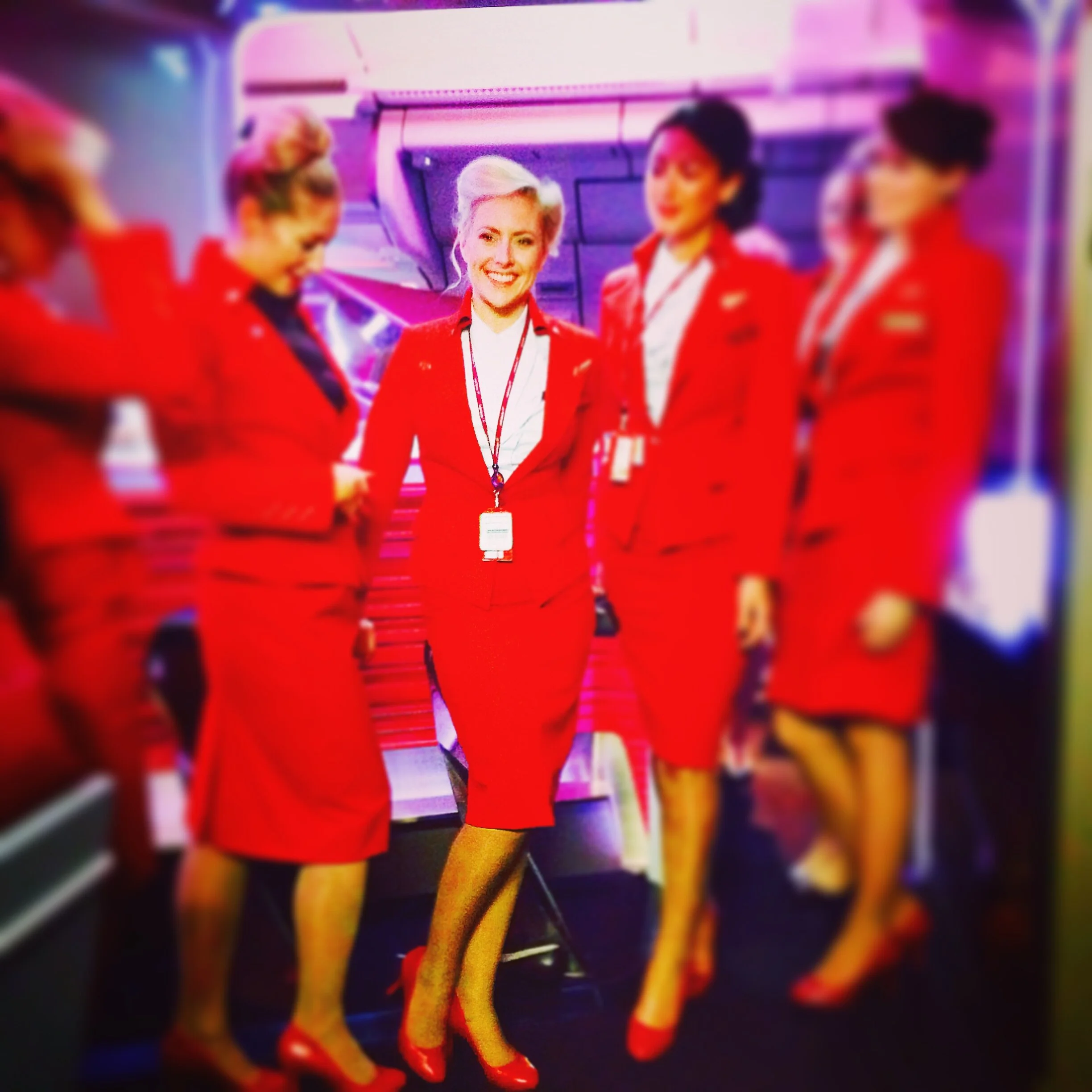Ex Cabin Crew and Travel Expert
I flew for Virgin Atlantic for 14 years, starting in 2002 as cabin crew and working my way up to Cabin Service Supervisor.
I took redundancy in 2016. My 14 years in the aviation industry, flying long haul international routes, gave me a world of experience in dealing with a lot of different issues. Drunk passengers, medical emergencies, air rage and emergency situations. Not to mention the fun side of flying, international parties, working for VIPs and celebrities, staying in luxury hotels and flying around the world for free.
Since leaving Virgin Atlantic, I have appeared on numerous news programmes, including Panorama, BBC Breakfast and Good Morning Britain. I frequently appear as a cabin crew expert on radio talk shows and have written articles, including one for The Guardian.
During the pandemic, I have been a co-host on a podcast called Not Just Crew, chatting to talented ex cabin crew who have found other careers after flying. The show is aimed to inspire crew world wide who have lost their jobs in aviation due to the effect COVID19 has had on the travel industry.
If you would like to talk to me about my experiences in the air, or would like me to appear on your show as a travel industry expert, please just call or email and we can chat.
Interviews with Ally Murphy about the Panorama documentary 'Plane Drunk' on the rise in drunk air passengers and the abuse crew receive from them. Aired 14th August 2017.
Guardian article written by Ally Murphy about drunk passengers on aircraft.
According to tonight’s Panorama programme there have been 387 arrests for drunken air behaviour in the last year, a rise of 50%. The numbers may well be much higher says a former flight attendant
When you’re trapped in a pressurised metal tube, hurtling through the sky at 500mph, it’s an unusual situation.
Certain stresses – not being in control, lower oxygen levels, having your personal space encroached, or just pure excitement for your destination – mean people like to use alcohol to either manage nerves or to celebrate. But what if those drinks affect you more than usual? What if they make you behave in a way that you never normally would.
In a 14-year cabin crew career, the majority of incidents I’ve seen involving drunken passengers have not been with the stereotypical guy on a stag do. They were with seemingly normal, nice people who had taken the offer of a free shot of liquor in the duty free shop, had a few pints with their pre-flight meal, and enjoyed a few more tipples on board.
I have been sworn at, threatened, vomited on, touched inappropriately, had hands up my skirt, and physically pulled into an upper-class seat by an enamoured drunken young man.
For too long, cabin crew have put up with such incidents because our culture promotes the maxim that the customer is always right. Even if the customer has just technically broken the law.
The worst thing I’ve seen is a passenger who mixed medication and alcohol – he thought we were trapping him and tried to open the plane door. It’s not actually possible but he scared a lot of people and he was restrained. In the morning, he had no recollection.
My colleagues have experienced passengers urinating on people, performing public sexual activities and inflicting physical bodily harm. It is not acceptable and the time has come for the law to be enforced. With just 387 passengers arrested for drunken behaviour in the year to February 2017, yet 90% of crew saying they deal with such incidents, something doesn’t add up.
The reporting of seemingly one-off incidents of verbal, physical and sexual abuse towards staff should be encouraged, and stricter punishments should be handed out to those who commit them.
Alcohol should be moderated in airports, as it is by the crew on board, and most certainly not served with breakfast. It should be made a criminal offence for passengers to drink their own supply on board as it’s impossible for crew to monitor such drinking. And passengers should be aware of their own behaviour and question why they would want to be so out of control in such a pressurised environment.
Because while the crew are there to make sure passengers have a pleasant start or end to their travels, we are really there in case of medical emergency, safety and security, and conflict management. If we have to deal with drunken passengers it could distract from another medical or safety emergency with potentially dire consequences.

